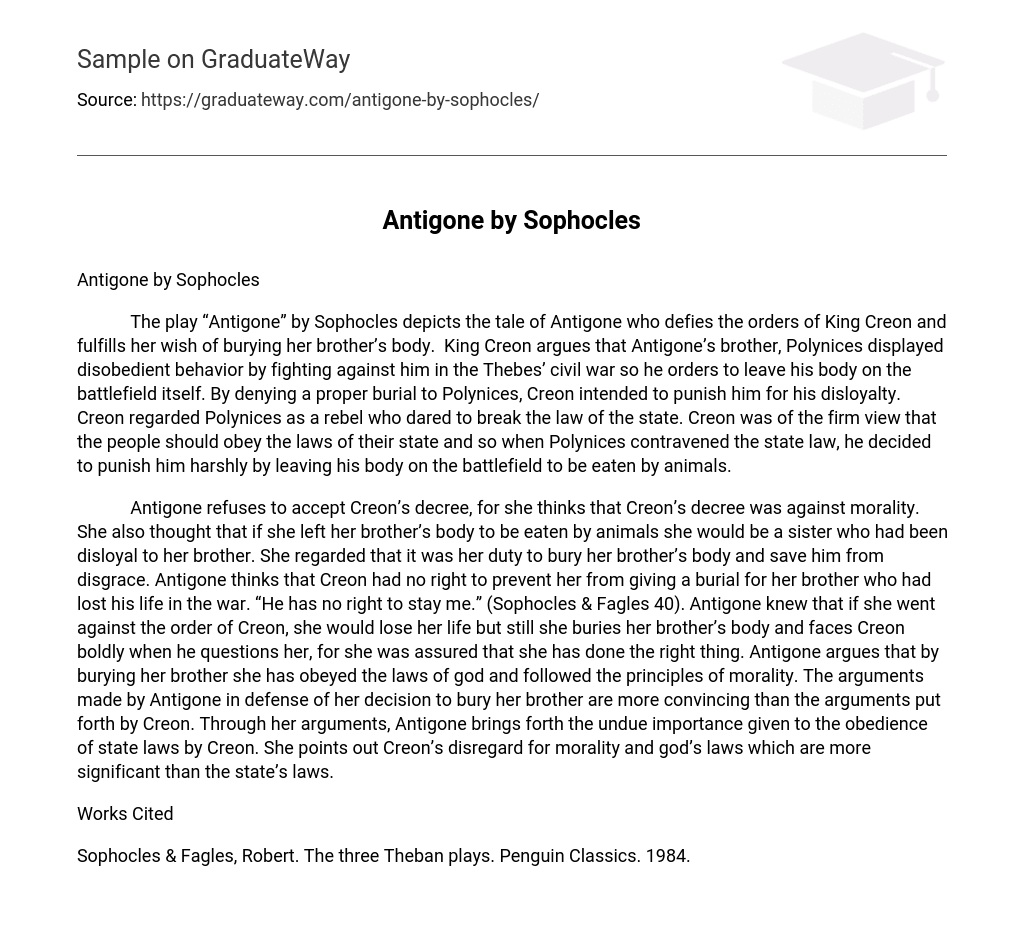The play “Antigone” by Sophocles depicts the tale of Antigone who defies the orders of King Creon and fulfills her wish of burying her brother’s body. King Creon argues that Antigone’s brother, Polynices displayed disobedient behavior by fighting against him in the Thebes’ civil war so he orders to leave his body on the battlefield itself. By denying a proper burial to Polynices, Creon intended to punish him for his disloyalty. Creon regarded Polynices as a rebel who dared to break the law of the state. Creon was of the firm view that the people should obey the laws of their state and so when Polynices contravened the state law, he decided to punish him harshly by leaving his body on the battlefield to be eaten by animals.
Antigone refuses to accept Creon’s decree, for she thinks that Creon’s decree was against morality. She also thought that if she left her brother’s body to be eaten by animals she would be a sister who had been disloyal to her brother. She regarded that it was her duty to bury her brother’s body and save him from disgrace. Antigone thinks that Creon had no right to prevent her from giving a burial for her brother who had lost his life in the war. “He has no right to stay me.” (Sophocles & Fagles 40). Antigone knew that if she went against the order of Creon, she would lose her life but still she buries her brother’s body and faces Creon boldly when he questions her, for she was assured that she has done the right thing. Antigone argues that by burying her brother she has obeyed the laws of god and followed the principles of morality. The arguments made by Antigone in defense of her decision to bury her brother are more convincing than the arguments put forth by Creon. Through her arguments, Antigone brings forth the undue importance given to the obedience of state laws by Creon. She points out Creon’s disregard for morality and god’s laws which are more significant than the state’s laws.
Works Cited
Sophocles & Fagles, Robert. The three Theban plays. Penguin Classics. 1984.





